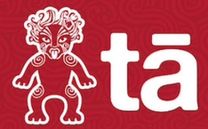|
Influence de la fatigue mentale sur les performances physiques
La fatigue mentale est un état psychobiologique vécu par l’ensemble des individus après avoir réalisé une tâche cognitive intense et/ou prolongée, qui se caractérise par une sensation d’épuisement et de manque d’énergie. Si la fatigue mentale altère les fonctions cognitives comme l’attention ou la planification de l’action, elle peut également avoir des effets délétères sur les performances physiques. Dans cette revue, nous décrirons les avancées récentes relatives à l’effet de la fatigue mentale sur les performances physiques. Nous nous focaliserons plus particulièrement sur trois types d’exercices physiques : 1) les exercices globaux dynamiques, tels que le cyclisme ou la course à pied ; 2) les exercices analytiques, comme une contraction sous-maximale soutenue jusqu’à épuisement ou une contraction maximale volontaire d’un groupe musculaire donné ; et 3) les tâches de pointage, pouvant être illustrées par le conflit vitesse-précision. Enfin, nous présenterons les structures cérébrales potentiellement impliquées dans cette interaction entre fatigue mentale et performances physiques.
 Article Rozand & Lepers (2016) Article Rozand & Lepers (2016)
|
|
Does a mental-training session induce neuromuscular fatigue ?
Mental training, as physical training, enhances muscle strength. While the repetition of maximal voluntary contractions (MVCs) induces neuromuscular fatigue, the effect of maximal imagined contractions (MICs) on neuromuscular fatigue remains still unknown.
Aim of the study : To investigate neuromuscular alterations following a mental-training session including MICs, a physical-training session including MVCs, and a combined-training session including both MICs and MVCs of the elbow flexor muscles.
Conclusion : These results suggested that one session of mental training alone or combined with physical training do not induce (additional) neuromuscular fatigue despite the repetitive activation of the corticospinal track. Motor imagery may be added to physical practice to increase the total workload without exacerbating neuromuscular fatigue.
 Rozand et al. MSSE (2014) Rozand et al. MSSE (2014)
|
|
Does mental exertion alter maximal muscle activation ?
Mental exertion is known to impair endurance performance, but its effects on neuromuscular function remain unclear.
The main purpose of this study was to investigate the hypothesis that mental exertion reduces torque and muscle activation during intermittent maximal voluntary contractions (MVCs) of the knee extensors.
Conclusion : These findings demonstrate that mental exertion does not affect neuromuscular function during intermittent MVCs of the knee extensors.
 Rozand et al. Frontiers (2014) Rozand et al. Frontiers (2014)
|
|
Response inhibition impairs subsequent self‑paced endurance performance
The aim of this study was to test the effects of mental exertion involving response inhibition on pacing and endurance performance during a subsequent 5-km running time trial.
Conclusion : These findings show for the first time that 30 min of mental exertion involving response inhibition reduces subsequent self-paced endurance performance despite no overt mental fatigue. The impairment in endurance performance observed after the incongruent Stroop task seems to be mediated by the higher perception of effort as predicted by the psychobiological model of endurance performance.
 Pageaux et al. Eur J Appl Physiol (2014) Pageaux et al. Eur J Appl Physiol (2014)
|
|
Prolonged Mental Exertion Does Not Alter Neuromuscular Function of the Knee Extensors
The aim of this study was to test the hypotheses that prolonged mental exertion (i) reduces maximal muscle activation and (ii) increases the extent of central fatigue induced by subsequent endurance exercise.
Conclusion: These findings provide the first experimental evidence that prolonged mental exertion (i) does not reduce maximal muscle activation and (ii) does not increase the extent of central fatigue induced by subsequent endurance exercise. The negative effect of mental fatigue on endurance performance seems to be mediated by the higher perception of effort rather than impaired neuromuscular function.
 Pageaux et al. Med Sci Sport Exerc. (2013) Pageaux et al. Med Sci Sport Exerc. (2013)
|
|
|
|
|
|
|
|
|
|
|











